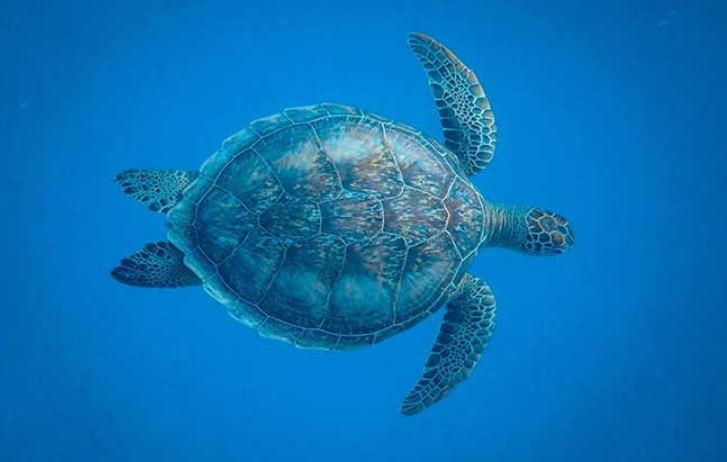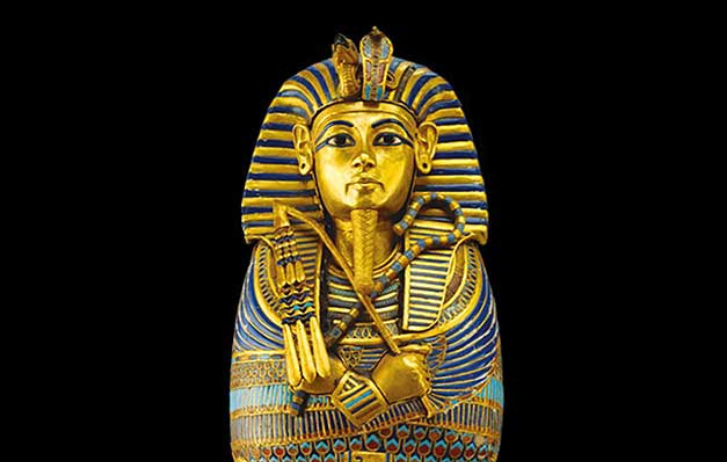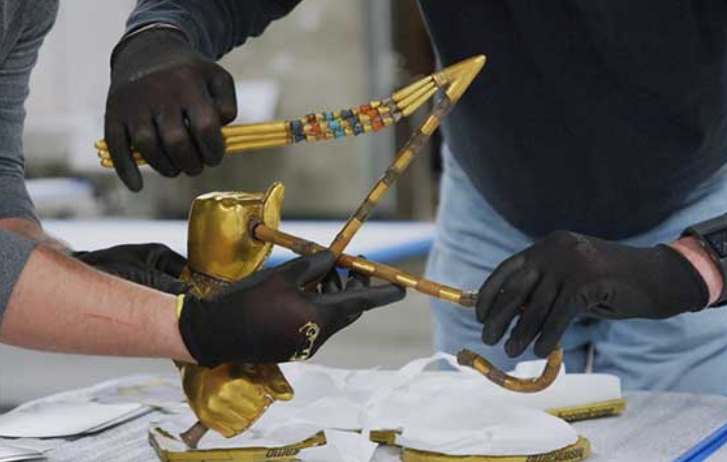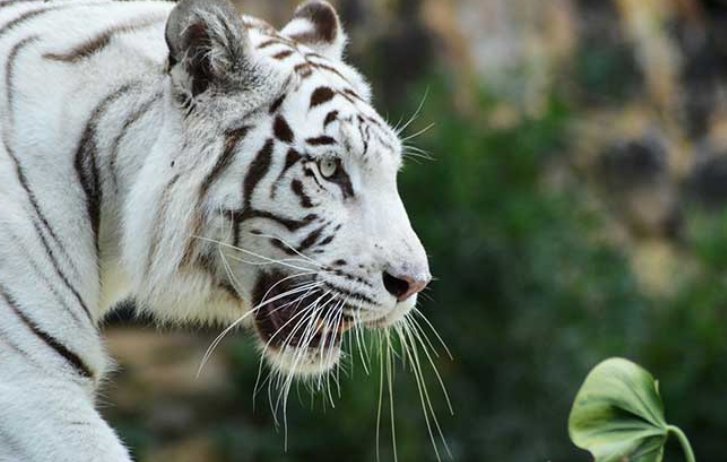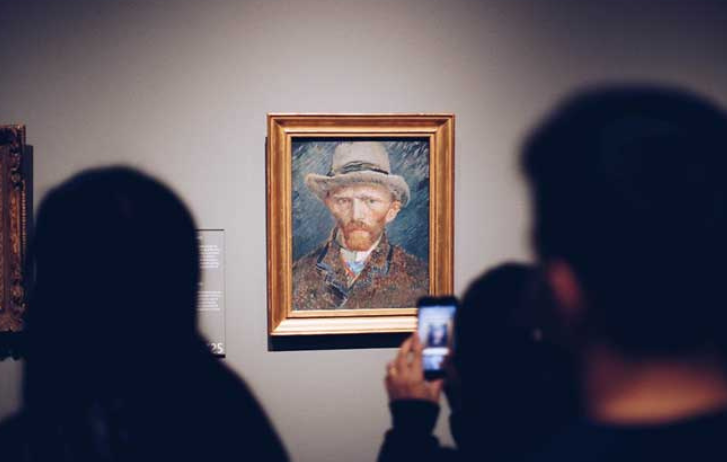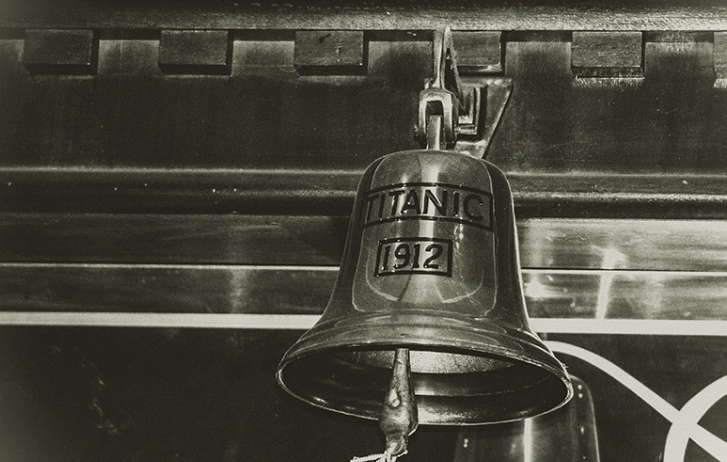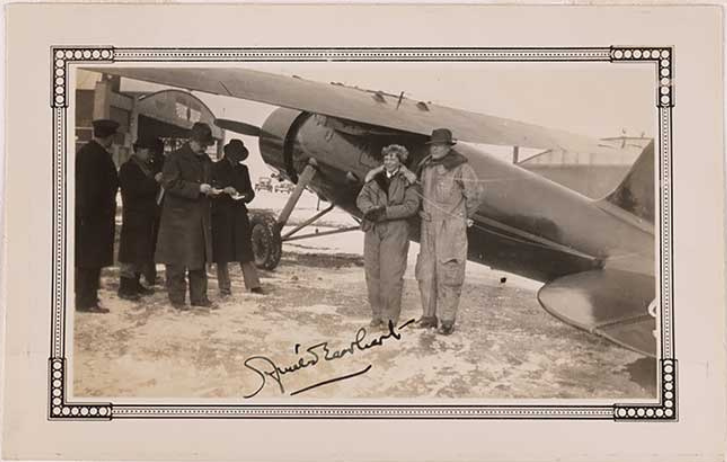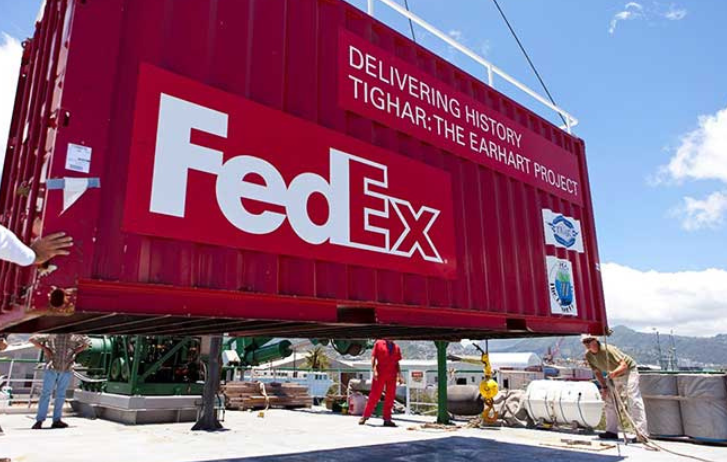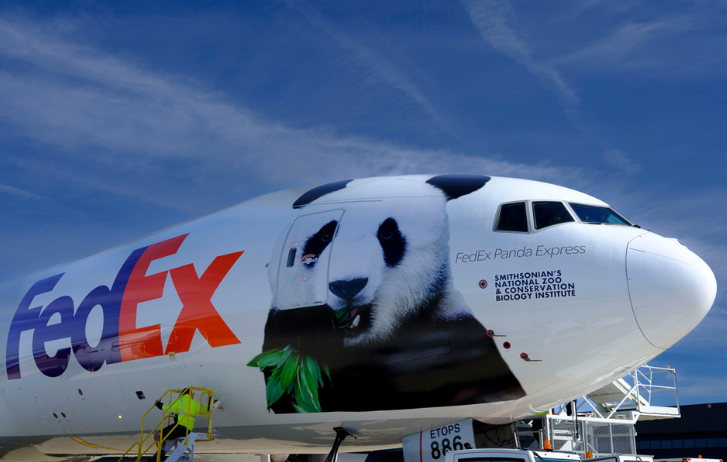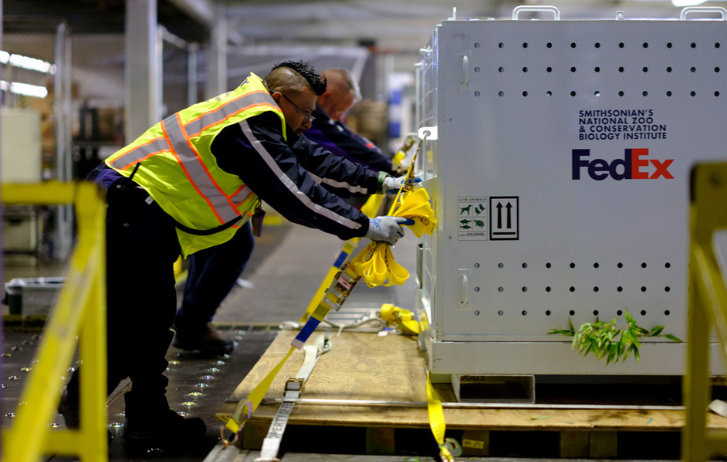
8 Most Unusual Shipments In The History Of FedEx
By FedEx | First published: July 24, 2020 Updated: October 7, 2024
From priceless artifacts to live animals, FedEx leverages its global network to ship rare and unusual items.
- FedEx first launched delivery services in 1973, giving US customers an alternative to their domestic post office.
- Over the years, FedEx has moved billions of items of all shapes and sizes across the globe.
- From priceless museum artifacts to pandas, tigers and bears, we treat every delivery with the utmost care.
Ever wondered what it takes to move dinosaur bones halfway across the world? How about a stable of racehorses, or a family of chimpanzees? Put it this way: if you can picture it, we’ve probably moved it, navigating tricky logistical challenges along the way!
From entire museum exhibitions to shipping live animals, here’s a look at some of our strangest shipments yet.
1. Endangered turtle eggs, Gulf of Mexico to Florida
In 2010, FedEx joined forces with the National Fish and Wildlife Foundation, rescuing endangered sea turtle nests and eggs from a mass oil spill in the Gulf of Mexico. The conservation effort involved transporting hundreds of nests with thousands of eggs to Florida’s Atlantic Coast.
With hatching season just around the corner, we worked quickly with scientists on a safe, secure transportation solution. As precious cargo, the turtle nests and eggs traveled in FedEx Custom Critical air-ride, temperature-controlled vehicles. Our teams were happy to play a role in protecting such a beautiful species!
2. Ancient Egyptian Artifacts, Los Angeles to Paris
The Ancient Egyptians built vastly intricate tombs to house royal funeral chambers and treasure stores over 3 millennia ago. They’d never have dreamed that historians of the future would later move those artifacts thousands of miles from Cairo.
As the official logistics provider for KING TUT: ‘Treasures of the Golden Pharoah’ in 2019, FedEx did just that.
Shipments like this are where logistics get seriously complex. Incredibly fragile and sensitive to humidity, temperature, motion and impact, transporting ancient relics is anything but easy. With over 150 exhibition pieces packed in 20 custom-built crates, the painstaking process was overseen by members of the Egyptian Museum in Cairo.
Tutankhamun artifacts were escorted from Los Angeles by a special security team and a curator from Egypt in a dedicated plane. Crates were fitted with special tilt-sensing recorders. With 14,500kg of priceless artifacts transported in temperature-stable conditions on a 10,000km journey, we successfully delivered some of humanity’s most valuable treasures without a hitch.
3. White tigers, United States to Bangkok, Thailand
For a white Bengal tiger to be born naturally, both parents must carry the ultra-rare white color gene. As ordinary Bengal tigers are already incredibly rare, and this phenomenon occurs just once every 10,000 births, a white tiger is nothing short of a miracle.
Back in 2002, FedEx was honored with the duty of transporting not one but six white tigers from Nashville and Oklahoma, U.S. to the capital of Thailand. Under the Species Survival program, special efforts are in place to ensure the longevity of these incredible animals and protect them from the fate of illegal inbreeding.
A special MD-11 jet from Memphis carried the precious live cargo. Six separate enclosures housing a tiger of around 3,500 lbs were used to transport the animals to their final destination: Bangkok. The tigers were accompanied by specially trained vets and zoo attendants, who ensured the big cats’ journey was comfortable and safe.
4. Van Gogh’s dining table, France to Switzerland
It’s a rare thing to sit at the table of a world-famous genius. Steeped in history, the ‘Van Gogh Table’ was a favored spot of the artist himself when boarding at a small Swiss hotel called the Auberge Ravoux, also known as the last House of Van Gogh. During his stay in 1890, Van Gogh painted several important works, including At Eternity’s Gate.
While preparations for a seminal Van Gogh exhibition were underway at the Kunstmuseum Basel in 2009, a nearby hotel decided to transport the world-famous Van Gogh Table from the Auberge Ravoux in Auvers-sur-Oise, France, to Basel.
The Grand Hotel Les Trois Rois offered a special ‘Menu Van Gogh’ – and a closer look at the table – with some of the artist’s favorite French dishes to complement the exhibition nearby. FedEx teamed up with art historians and hoteliers to conduct safe and secure passage for the priceless piece of furniture.
5. Beaujolais Nouveau wine, France to Japan
The ‘Beaujolais Nouveau’ festival is a special moment in the world of wine. This wine, made from fresh, young Gamay grapes in the French Beaujolais region, is celebrated every November. Affectionately dubbed ‘BoJo’ by those in the industry, Beaujolais Nouveau Day is marked in France on the third Thursday in November with fireworks, music and festivals.
Under French law, the wine is released at 12.01 am, just weeks after the grapes have been harvested. Parties held throughout the country and further afield celebrate the first wine of the season.
Japan is a huge market for Beaujolais Nouveau. In November 2004, FedEx took the special wine to the skies, shipping 504,000 bottles of Beaujolais Nouveau wine from Lyon-Saint-Exupery Airport to Japan. The annual uncorking celebration saw Japanese oenophiles drink over 630 tons of wine!
As wine is a delicate, potentially volatile product, we needed to make sure it could be transported at the correct temperature and tilt angle to make it to the uncorking ceremony without a hitch.
6. Parts from the historic Titanic from Milan, Italy to Atlanta, Georgia
The sinking of the Titanic was one of the greatest tragedies of the early 20th century, and the story has captured imaginations ever since. But piecing together the history of the great ship hasn’t been easy.
For the Atlanta Museum, the 2006 ‘Titanic: The Artifact Exhibition’, featuring recovered treasures from the deep, was a momentous milestone. But suddenly, calamity struck. Exhibition artifacts bound for Atlanta from Greece became stranded. Mistakenly re-routed from Athens to Italy, the shipment was held by Customs, who refused to release it. With the museum at a loss, FedEx stepped in.
It was a race against time to deliver the special cargo for the exhibition opening. FedEx Europe and US offices worked round the clock to complete this one-of-a-kind shipment which even included a 3,000 lb piece of the ship’s original hull.
7. Search for Amelia Earhart, Los Angeles to Hawaii
One of aviation’s greatest mysteries is the disappearance of pioneer aviator Amelia Earhart. The first female to fly solo across the Atlantic in 1928, she disappeared mid-flight in 1932 on an attempt to fly around the world. Her plane was never recovered.
On the 75th anniversary of Earhart’s disappearance in 2012, FedEx joined a special mission to search for the missing aircraft and solve one of the 20th century’s most enduring puzzles. We teamed up with TIGHAR and the Discovery Channel to put our air logistics expertise to the test.
The plan? To comb the ocean underneath Earhart’s supposed flight path, off the coast of Hawaii. The expedition’s deep water search was only made possible with specialized robotic equipment, shipped in by FedEx from the continental US.
The sensitive nature and oversized scale of the robotic equipment required a custom FedEx delivery solution. Covering a 22,000 mile round trip over land, air and sea, three FedEx operating companies came together to arrange delivery for a successful mission.
Three containers weighing 25,890 lbs traveled over 2,200 nautical miles by ocean freight from Los Angeles to Honolulu. The team also flew in nearly 6,000 lbs of additional equipment from Massachusetts. This included the project’s Autonomous Underwater Vehicle (AUV), which uses sonar to scour the ocean depths for signs of aircraft.
As a key step towards the final discovery of the Earhart mystery, the mission was a rewarding one. Today the search for an answer continues.
8. Giant pandas, United States to China
What does it take to ship a giant panda from one continent to another? Typically, we need:
- A specially branded Boeing 777 FedEx plane - the Panda Express - for a 16-hour nonstop flight between the US and China
- Special on-board enclosure maintained at 65 degrees Fahrenheit – just how our panda guests like it
- Over 70 lbs of a giant panda’s favorite treats, including bamboo, apples, biscuits and sweet potato
- Two dedicated companions: a Smithsonian National Zookeeper and a vet
Since 2000, we’ve transported 15 giant pandas across 10 different journeys, typically from the Smithsonian Zoo in Washington, US back to their native China.
One special panda, Bei Bei, was given his name (meaning ‘treasure’) by the two first ladies of the US and China in 2015: Michelle Obama and Peng Liyuan. In 2019, he became a social media sensation, clocking up millions of hits. The Smithsonian Zoo even launched a 24-hour ‘Panda Cam’ live from Bei Bei’s enclosure in the countdown to his homeward journey.
As giant pandas are a national treasure in China, we’re proud to be chosen as a trusted carrier to support these important deliveries.
Delivering a better future
Over the last 50 years, FedEx has played an important role in preserving the rich cultural history of the past for future generations. From moving priceless artifacts to saving species under threat, these unusual shipments allow more people around the world to appreciate human history, culture, and our planet’s wildlife.
We donate these shipping services as part of our Delivering for Good program, contributing to wider education and supporting cultural exchanges. Our goal is to positively impact global communities and help create a more promising future.
For more fascinating stories of weird and wonderful shipments, check out Part 2 of this series here.
To find out more about shipping high-value, out-of-the-ordinary deliveries, check out FedEx Custom Critical here.
SHARE THIS STORY
- How To Ship A Giant Panda
- How To Make Freight Shipments Work For Your Small Business
- The Rise Of Intra-Asia Trade: Opportunities In The China-Southeast Asia Corridor
- Southeast Asia: The Next Manufacturing Powerhouse?
- 8 Most Unusual Shipments In The History Of FedEx
- Where Do Old Planes Go When They Retire?
Sign up now and save on your shipping rates!
Sign up now and earn discounts by shipping instantly with FedEx Ship ManagerTM at fedex.com.
Recommended For You

How To Keep Your High-Value Shipments Safe And Secure
Here’s how your business can prevent costly damage and ensure safe, on-time delivery.
Read More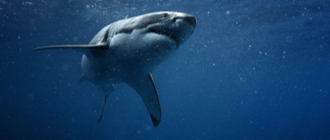
Top 8 Most Unusual Things We’ve Ever Shipped: Part II
Whether rescuing animals in need or shipping priceless cultural artifacts, we have decades of experience moving highly rare items around the world.
Read More
Here Are The Top 5 Most Difficult Items To Pack
Fragile and sensitive packages are shipped worldwide every day. As packing unconventional items can be tricky, here are some tips to keep them safe.
Read More